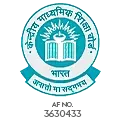In the dynamic landscape of international education, the teaching quality contributes significantly to the outcome of the students. Teacher training and professional development (TPD) constitute an important element in making sure that teachers have the ability and knowledge to provide quality learning.
The Importance of TPD in International Schools
International schools exist within diverse cultural contexts, serving students from different ethnicities. Effective teachers need to be adaptable, culturally sensitive, and equipped with the latest pedagogical approaches. TPD programmes in international schools assist educators:
Also read: Navigating International Education: The Challenges of a New Cultural Landscape
- Stay Updated with Global Trends: International education is constantly evolving. TPD ensures teachers are aware of the latest trends, research, and best practices in education.
- Develop Cultural Competence: Understanding and respecting different cultures is crucial in international settings. TPD programmes can help teachers develop both cultural competence and awareness to create inclusive classrooms.
- Enhance Teaching Skills: Through workshops, seminars, and online courses, teachers can refine their teaching methods, improve classroom management, and enhance student engagement.
- Foster Professional Growth: TPD opportunities can help teachers develop their leadership skills, become mentors, or pursue advanced degrees.
Key Components of TPD Programs in International Schools
Effective TPD programmes in international schools typically include the following components:
- Professional Learning Communities: These communities provide a platform for teachers to collaborate, share ideas, and learn from each other.
- Mentorship Programmes: Experienced teachers can mentor new or less experienced colleagues, offering guidance and support.
- Conferences and Workshops: Attending conferences and workshops can expose teachers to new ideas and different ways of teaching.
- Online Courses and Webinars: Flexible online learning options can cater to teachers’s busy schedules and provide access to a wide range of topics.
- Action Research: Teachers can conduct research projects to investigate their own teaching practices and identify areas for improvement.
Overcoming Challenges
When it comes to introducing and implementing TPD programmes in international schools, challenges such as limited resources, cultural differences, and varying teacher needs are common. Some practices aimed at resolving these problems include:
- Needs Assessment: Regularly assess the needs for the professional development of teachers to ensure that TPD programmes stay relevant and targeted.
- Collaboration: Foster collaboration between teachers, administrators, and external experts to design and deliver effective TPD programmes.
- Continuous Evaluation: Assess the effects of TPD programmes on the performance of teachers, and the performance of students.
- Personalised Professional Development: Offer a variety of TPD options to cater to different learning styles and preferences.
Conclusion
The importance of teacher training and upskilling in the success of international schools cannot be overemphasised. As such, the management of the schools has to engage and invest in TPD so as to prepare their teachers for the provision of quality education and grooming the students to fit in the global environment.






